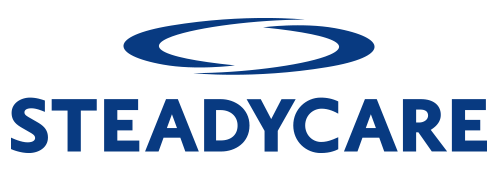Compliance with visit verification is a critical aspect of ensuring transparency, accuracy, and accountability in the delivery of home health and group home services. Pennsylvania, like many states, has implemented visit verification requirements to enhance the quality of care and prevent fraud. Read on to explore the key aspects of home health and group home visit verification compliance in Pennsylvania and the measures agencies can take to meet these requirements effectively.
Understanding Visit Verification in Pennsylvania:
Visit verification is the process of documenting and confirming that a healthcare service, such as a home health or group home visit, has occurred. In Pennsylvania, this verification is crucial for Medicaid reimbursement and aligns with the broader initiative to enhance transparency and accountability in the healthcare system.
Key Components of Visit Verification Compliance:
Electronic Visit Verification (EVV):
Pennsylvania has adopted Electronic Visit Verification as a method to accurately record and track home health and group home visits. EVV uses technology to capture real-time data, including the date, time, and location of the service, as well as the identity of the caregiver providing the service.
Verification of Caregiver Identity:
Agencies must ensure that the caregiver providing the service is correctly identified and authorized. This can involve the use of secure identification methods, such as unique login credentials, to prevent unauthorized individuals from recording visits.
Accuracy of Service Information:
Visit verification records must accurately reflect the services provided during a home health or group home visit. This includes details such as the type of service, duration, and any specific tasks or activities carried out by the caregiver.
Compliance Measures for Home Health and Group Home Agencies:
Implementation of EVV Systems:
Home health and group home agencies in Pennsylvania should implement EVV systems that comply with state regulations. These systems should be user-friendly for caregivers while providing robust data security and accuracy.
Training and Education:
Ensure that caregivers and agency staff are well-trained on the proper use of EVV systems and understand the importance of accurate visit verification. Ongoing education programs can help reinforce compliance practices.
Regular Audits and Monitoring:
Conduct regular audits of visit verification records to identify any discrepancies or potential issues. Monitoring the accuracy and completeness of the data recorded ensures that agencies can address compliance issues promptly.
Stay Informed About Regulatory Changes:
Healthcare regulations, including those related to visit verification, can evolve. Stay informed about any changes in Pennsylvania’s requirements and update agency policies and procedures accordingly. You can check out Pennsylvania Home Health Regulations to keep yourself up to date.
Benefits of Visit Verification Compliance:
Reduced Fraud and Abuse:
Visit verification compliance helps prevent fraudulent claims by ensuring that services are delivered as documented. This protects the integrity of the Medicaid system and enhances public trust.
Improved Quality of Care:
Accurate visit verification contributes to the overall quality of care by providing a reliable record of the services rendered. This documentation can be valuable for care coordination and future healthcare planning.
Streamlined Billing Processes:
Visit verification compliance facilitates accurate billing processes, reducing the likelihood of delays or denials in Medicaid reimbursement. This ensures that agencies can maintain financial stability and continue to provide quality care.
Compliance with home health and group home visit verification in Pennsylvania is not just a regulatory requirement; it’s a commitment to transparency, accuracy, and the well-being of individuals receiving care. By embracing Electronic Visit Verification systems, prioritizing caregiver training, conducting regular audits, and staying informed about regulatory changes, agencies can navigate the complexities of compliance while delivering high-quality and accountable healthcare services. In doing so, they contribute to the overarching goal of enhancing the healthcare experience for both caregivers and the individuals they serve in the state of Pennsylvania.
